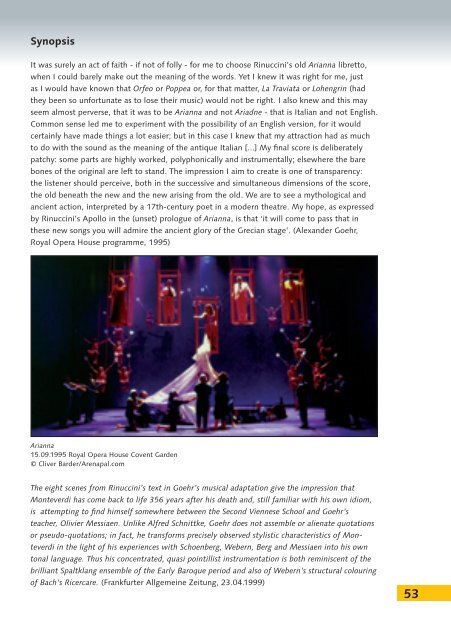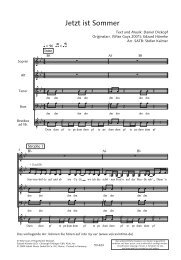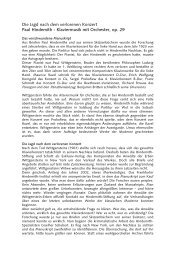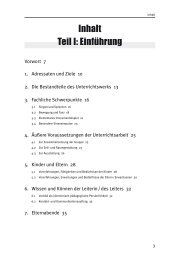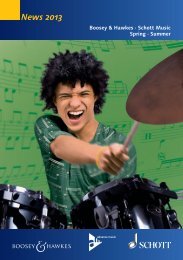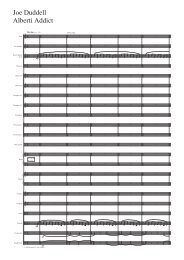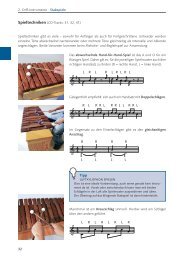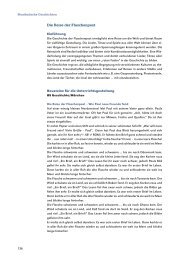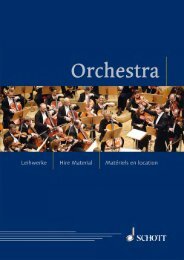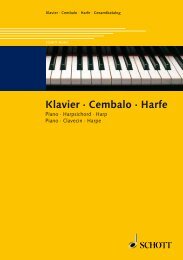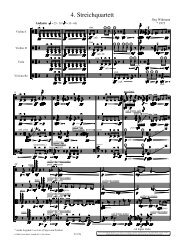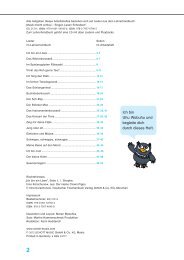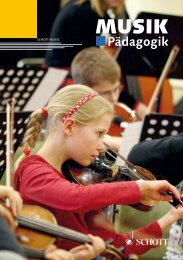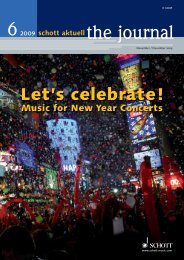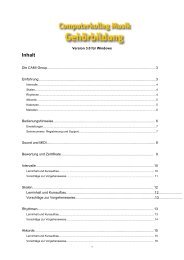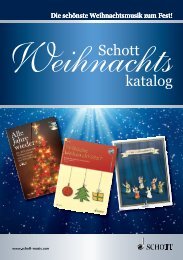Music Theatre since 1990 - Schott Music
Music Theatre since 1990 - Schott Music
Music Theatre since 1990 - Schott Music
Create successful ePaper yourself
Turn your PDF publications into a flip-book with our unique Google optimized e-Paper software.
Synopsis<br />
It was surely an act of faith - if not of folly - for me to choose Rinuccini’s old Arianna libretto,<br />
when I could barely make out the meaning of the words. Yet I knew it was right for me, just<br />
as I would have known that Orfeo or Poppea or, for that matter, La Traviata or Lohengrin (had<br />
they been so unfortunate as to lose their music) would not be right. I also knew and this may<br />
seem almost perverse, that it was to be Arianna and not Ariadne - that is Italian and not English.<br />
Common sense led me to experiment with the possibility of an English version, for it would<br />
certainly have made things a lot easier; but in this case I knew that my attraction had as much<br />
to do with the sound as the meaning of the antique Italian [...] My final score is deliberately<br />
patchy: some parts are highly worked, polyphonically and instrumentally; elsewhere the bare<br />
bones of the original are left to stand. The impression I aim to create is one of transparency:<br />
the listener should perceive, both in the successive and simultaneous dimensions of the score,<br />
the old beneath the new and the new arising from the old. We are to see a mythological and<br />
ancient action, interpreted by a 17th-century poet in a modern theatre. My hope, as expressed<br />
by Rinuccini’s Apollo in the (unset) prologue of Arianna, is that ‘it will come to pass that in<br />
these new songs you will admire the ancient glory of the Grecian stage’. (Alexander Goehr,<br />
Royal Opera House programme, 1995)<br />
Arianna<br />
15.09.1995 Royal Opera House Covent Garden<br />
© Cliver Barder/Arenapal.com<br />
The eight scenes from Rinuccini’s text in Goehr’s musical adaptation give the impression that<br />
Monteverdi has come back to life 356 years after his death and, still familiar with his own idiom,<br />
is attempting to find himself somewhere between the Second Viennese School and Goehr’s<br />
teacher, Olivier Messiaen. Unlike Alfred Schnittke, Goehr does not assemble or alienate quotations<br />
or pseudo-quotations; in fact, he transforms precisely observed stylistic characteristics of Monteverdi<br />
in the light of his experiences with Schoenberg, Webern, Berg and Messiaen into his own<br />
tonal language. Thus his concentrated, quasi pointillist instrumentation is both reminiscent of the<br />
brilliant Spaltklang ensemble of the Early Baroque period and also of Webern’s structural colouring<br />
of Bach’s Ricercare. (Frankfurter Allgemeine Zeitung, 23.04.1999)<br />
53


